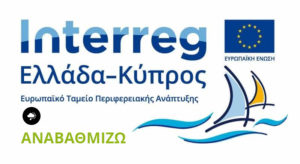Keynote speakers
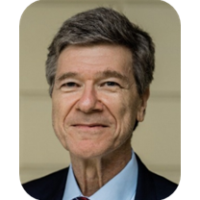
JEFFREY SACHS
Professor (Director of the Center for Sustainable Development) at Columbia University, president of the UN Sustainable Development Solutions Network, 2022 recipient of the Tang Prize in Sustainable Development and co-recipient of the 2015 Blue Planet Prize
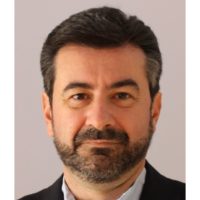
ANDREA MORO
Architect, researcher and educator, president of the national Chapter iiSBE Italia, scientific responsible for the Protocollo ITACA
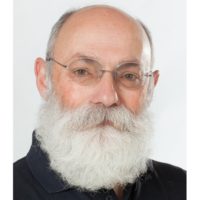
ISAAC A. MEIR
Professor at Dept. of Civil & Environmental Engineering, Faculty of Engineering Sciences & Desert Architecture & Urban Planning, Jacob Blaustein Institutes for Desert Research, Ben-Gurion University of the Negev (BGU), Israel
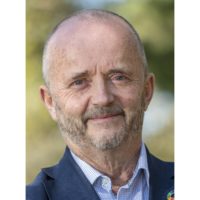
ANDERS PERSSON
Director of public affairs at the Federation of Swedish Innovation Companies (FSIC), representing FIDIC as a member of the steering committee of – SBE – Sustainable Built Environment Conference Series
Conference Program
09:00 Registration
09:30 Opening Ceremony
10:00 Keynote Speech. Jefrey Sachs (online speech)
10:30 Parallel Sessions
Hall 1. Energy performance: approach to individual aspects
Chair: Prof. Sandro Nižetić
Emilia-Cerna Mladin,
Effect of thermal insulation on primary energy use for building heating and cooling combined.
Paris Fokaides,
First evidences of energy performance certificate operational rating: The case of Cyprus.
Lorenzo Ferrari,
Latent heat storage design for low temperature heat applications.
Roshni Yehuda,
Thermal performance and environmental sustainability of traditional houses in Pangna, Himachal Pradesh, India.
Despoina Teli,
Using data-driven indoor temperature setpoints in energy simulations of existing buildings: a Swedish case study.
Hall 2. Emerging concerns: carbon management and circularity
Chair: Prof. Emeritus Dimitrios Bikas
Dimitrios Mendrinos,
What do stakeholders expect from an integrated system for informing social partners and decision makers in digital monitoring of CO2 storage.
Rebecka Lundgren,
Adaptive reuse and shared spaces – evaluating the lifecycle carbon impact.
Iliana Papamichael,
Measuring Circularity: Tools for monitoring a smooth transition to Circular Economy.
Olympia Polyzou,
Analysis of the legislative and regulatory framework of CO2 capture, transport and storage systems in targeted European countries.
Theoni I. Oikonomou,
The CO2NSTRUCT European project: Modelling the role of circular economy in construction value chains for a carbon-neutral Europe.
11:45 ☕ Coffee break
12:15 Parallel Sessions
Hall 1. Energy efficiency of buildings & districts
Chair: Assoc. Prof. Dimitris Kraniotis
Eleni Chatzigeorgiou,
Solar Cadaster for assessment of near-zero energy districts.
Rea Stefanou,
The energy refurbishment of typical school buildings in Cyprus following an integrated methodology.
Andreas Androutsopoulos,
Energy saving in industrial buildings using advanced concentrated solar thermal systems.
Angelo Bertolazzi,
S.O.L.E.H. (Sustainable Operation Low-cost Energy for Hotels). Innovative tools and guidelines for the sustainable hotels.
Hall 2. “Moving” towards sustainability
Chair: Assoc. Prof. Ioannis Politis
Aristotelis Vartholomaios,
Follow the shade: detection of optimally shaded pedestrian paths within the historic city centre of Thessaloniki.
Milja Simeunović,
The role of the bike sharing system in sustainable transport in Novi Sad.
Mahgol Afshari,
Developing approaches and strategies to promote increased active mobility in urban city neighbourhood.
Alexandros Sdoukopoulos,
Assessing the fragmentation-barrier effect in urban areas: The case study of Thessaloniki, Greece.
Hall 3. re-Focusing on people: comfort and well being
Chair: Prof. Theodoros Theodosiou
Angelos Mylonas,
A systematic review of time user surveys-questionnaires and monitoring variables used to track occupant behaviour in residential buildings.
Mara Gabriela Diaconu,
Happiness in built environment, people and places.
Aikaterini Drakou,
Adaptive thermal comfort model and active occupant behaviour in a mixed-mode apartment. A synergy to sustainability.
Giannis Papadopoulos,
Theoretical and experimental investigation of ventilation rates and their relation with IAQ and thermal comfort in university classrooms during SARS-COV-2 pandemic.
13:15 🧆 Light Lunch break
14:15 Parallel Sessions
Hall 1. Environmental performance-life cycle considerations
Chair: Assist. Prof. Christina Giarma
Manish Dixit,
Analyzing embodied energy and embodied water for university buildings using input-output-based hybrid method.
Marta Braulio-Gonzalo,
Comparative Life Cycle Assessment of refurbishment alternatives for façade assemblies typically used in existing buildings in the Mediterranean region in Spain.
Michael Vollmer,
Life cycle-based parametric optimization of buildings towards climate neutrality and its implications for environmental protection.
Gkantalidou I. Stamatia,
Sustainable practices and green policies in airports: the case of airport of thessaloniki “Makedonia”.
Kathrin Theilig,
Towards zero emission buildings: A case study on a non-residential building in Germany using Life Cycle Assessment and Carbon Sequestration of Green Infrastructure.
Hall 2. Construction waste management, utilisation & prevention
Chair: Assoc. Prof. Karolos J. Kontoleon
Iliana Papamichael,
Environmental sustainability assessment of excavation, construction, and demolition waste conditions and practices across Greece and Cyprus.
Majda Belhaj,
Increasing the content of reclaimed asphalt in asphalt mixture by using rejuvenators.
Thomas Psilovikos,
The use and re-use of timber structure elements, within a waste hierarchy concept, as a tool towards circular economy for buildings.
Meliha Honic,
Applying EU Level(s) framework indicators to improve circularity: A case study.
Evangelos Koroxenidis,
Towards the digitalization and automation of circular and sustainable construction and demolition waste management – project RECONMATIC.
15:30 ☕ Coffee break
16:00 Parallel Sessions
Hall 1. Energy Interventions in Historic and Preserved Buildings
(Special Session), Chairs: Dr. A. Michopoulos, Prof. K. Tsikaloudaki
Andreas Kyriakidis,
Energy retrofitting of heritage buildings: an integrated methodology.
Dimitris Katsaprakakis,
The energy performance upgrade of the historical building of “Loggia”, in Heraklion Crete, Greece.
Aleksandar Rajcic,
Energy interventions in historic and preserved buildings in Serbia – some examples from the practice.
Eleni Alexandrou,
Energy retrofits versus sustainable interventions on the existing Greek historic building stock. An overview.
Round Table
This session is fully funded by the co-operation project: “Energy Upgrading of the Historic Buildings of the Presidential Palace of the Republic of Cyprus and Loggia – Heraklion Town Hall” with the acronym “ANAVATHMEZO”. The project is co-funded by the European Union (ERDF) and national funds of Greece and Cyprus through the Interreg V-A Greece-Cyprus Cooperation Program 2014-2020.
Hall 2. Energy efficient and sustainable architecture
Chair: Prof. Theodoros Theodosiou
Lisa N. Hasan,
The problem with net zero building policy: reflecting on the making, and future, of a global discourse.
Alessio Mastrucci,
Global residential scenarios towards low energy and material demands.
Liljana Dimevska Sofronievska,
Assessment of today’s condition of Modernist architecture in Skopje in terms of energy efficiency and authentic architectural appearance using actor network theory.
Omar Asfour,
Towards a comprehensive understanding of the housing problem: A compact analytical framework with reference to Saudi Arabia.
Ifigeneia Theodoridou,
Barriers of large-scale energy efficiency modelling of urban building stocks. Methods to overcome them – the case of the Re-Polis platform.
09:00 Registration
09:30 Keynote Speech. Andrea Moro, Towards Sustainable MED Cities: methods and tools for high impact action plans
10:00 Parallel Sessions
Hall 1. Sustainability assessment at various scales
Chair: Dr. Elena Dascalaki
Shabnam Homaei,
A comparative assessment of building sustainability schemes in Norway.
Axelle Robert,
Environmental performance of districts: results of a French national assessment campaign.
Fabian Prideaux,
Assessment and consideration of embodied environmental effects during the building design process.
Shabnam Homaei,
Environmental impact assessment of on-site and off-site construction logistics activities – A case study analysis from Norway.
Aikaterini Litsa,
Beyond the building scale: addressing energy related issues in urban areas’ environmental performance assessment methods.
Hall 2. Materials & building elements
Chair: Prof. Stefanidou Maria
Rafail Panagiotou,
Hygrothermal Performance of adobe Structures.
Erik Pelicaen,
Challenges to upscale earth block masonry in Western Europe.
Barbara Oelbrandt,
Residential Brick Buildings in Flanders: materials and techniques in the 19th century.
Petrini Kampragkou,
Wood fibres as additives in mortars: a sustainable reinforcement.
Alexandros Liapis,
Assessing the sustainability of traditional building materials incorporating industrial byproducts.
Hall 3. Digitally assisted sustainable approaches
Chair: Assoc. Prof. Manish Dixit
Esam Abdullah H Alasmari,
Adopting BIM to enhance sustainability. The Saudi Arabia construction projects case study.
Iasonas Bakas,
A review of the contributions of Artificial Intelligence in fire engineering, in a world rapidly realising the need for sustainable design.
Fulvio Re Cecconi,
Data-Driven decision-making framework for cost-efficient energy retrofit of Italian residential building stock.
Lise Mouton,
Preliminary study on the use of Big Data for environmental benchmarks for residential buildings in Flanders.
Stavroula Thravalou,
Energy retrofit strategies of built heritage: using Building Information Modelling tools for streamlined energy and economic analysis
11:15 ☕ Coffee break
11:45 Parallel Sessions
Hall 1. Materials & structures for sustainability
Chair: Assoc. Prof. Karolos J. Kontoleon
Jelena Bosnjak,
Investigation of Thermal Properties of Pykrete.
Alexandros Tzavidis,
Evaluation of a strengthening approach for existing RC buildings in terms of resilience and cost efficiency.
Justus J. Steins,
Designing a new recycling network for post-demolition autoclaved aerated concrete (AAC) in Europe.
Hamid Nikzad,
Application of power algorithm optimization for optimal placement of BRB in 3D shear wall frame building structure.
Fotini Kesikidou,
Investigation on the use of PET and XLPE plastic wastes as aggregates in cement-based mortars.
Hall 2. RES and electromechanical systems
Chair: Dr. Andreas Androutsopoulos
Eftihia Tzen,
Τhe energy crisis as a challenge of small scale wind energy in urban areas- The case of Greece.
Alina Galimshina,
High-resolution and localized parametric embodied impact calculator of PV systems.
Justin Mccarty,
Multi-period optimisation of district-scale building integrated photovoltaic deployment from 2020 to 2050.
Panos Kosmopoulos,
The Impact of “permacrisis” to the attitudes of Greek people towards R.E.S. (recent results, 2022).
Ioannis Sotiriadis,
A review of the contribution of smoke management systems in building design by CFD analysis.
Hall 3. Buildings’ energy efficiency
Chair: Dr. Apostolos Michopoulos
Rajat Gupta,
Wintertime patterns of residential electricity use and indoor temperature in the composite climate of India.
Vasileios Kilis,
Multi-criteria optimization for the decision making in building envelope thermal design.
Volkan Arslan,
A Systematic Literature Review on Positive Energy Buildings.
Katerina Karanafti,
Analysing the existing dynamic insulation technologies focusing on buildings’ renovation – A review.
Stella Tsoka,
Climate change impacts on heating and cooling energy demand in residential building units. Application in the city of Thessaloniki, Greece.
13:00 🧆 Light Lunch break
14:00Keynote Speech. Isaac A. Meir, Towards environment informed, people oriented planning and design in times of climatic uncertainty
14:30 Parallel Sessions
Hall 1. Blue & Green Spaces
Chair: Assoc. Prof. Stela Tsoka
Ruggero Ermini,
Hydromorphic analysis of urban area transformation: the case study of the Matera city.
Roland Reitberger,
Connecting building density and vegetation to investigate synergies and trade-offs between thermal comfort and energy demand – a parametric study in the temperate climate of Germany.
Lucille Valois,
Performance assessment of the ecosystem services provided by urban Nature-based solutions: focus on rainwater management.
Maria Sinou,
Sustainable and aesthetic improvement of highways through multisensory landscape design: the case of the urban part of P.A.TH.E. in the Prefecture of Attica.
Hall 2. Light through a sustainability prism
Chair: Assoc. Prof. Lambros Doulos
Eleni Gkouvelou,
Non-visual daylight potential in offices: a parametric study.
Christina Skandali,
Conceptual steps to minimize energy consumption of exterior lighting in Greece: The role of façade and road lighting.
Eirini Kyritsi,
Indoor visual comfort and lighting energy consumption in typical office spaces in southern Europe: The assessment of integrated adaptive shading systems.
Thanos Balafoutis,
Introducing a methodology to define the negative effects of façade upward lighting.
Hall 2. Urban Sustainability
Chair: Assoc. Prof. Milena Vukmirovic
Nico Ehlers,
A holistic analysis of sustainability metrics at an urban district scale.
Irene Voukkali,
The city of tomorrow: Challenges and Solutions. A case study of a coastal town.
Variale Nicole Denise,
Fast growing cities and carbon neutral transition: how can skyscrapers meet 2050 agenda?
Isaac A. Meir,
A preliminary longitudinal study of the impact of tall buildings on urban centres.
15:30 ☕ Coffee break
16:00 Parallel Sessions
Hall 1. Innovative materials and techniques
Chair: Dr. Apostolos Michopoulos
Nick Adams,
Preliminar environmental benchmarks for a new Photonic Meta-Concrete based on state of the art radiative cooling materials.
Georgios Chantzis,
Innovative photocatalytic paints for healthy environment and energy saving (VISIONS project): The energy efficiency issue at Demo Houses in Crete Island, Greece.
Valeria Piccioni,
Printing thermal performance: an experimental exploration of 3DP polymers for facade applications.
Iva Muraj,
An Environmental quality assessment of office buildings: The impact of glass façade on internal and external users.
Lucas Matheus Caldas Vicente Lopes,
Influence of 3D microstructure for improving the thermal performance of building façades.
Miroslav Čekon,
Spectral transmittance changes in a PCM glass block under the influence of an artificial radiation source.
Hall 2. Indoor air quality & Ventilation
Chair: Assoc. Prof. Despoina Teli
Rachna Bhoonah,
Integration of indoor VOC impacts into the life cycle assesment of buildings.
Stavroula Thravalou,
The Ventilation Capacity of Earthen Vernacular Buildings With Timber Projections (Sachnisi) in Dense Urban Canyons – Findings From a Field Study in the Mediterranean.
Blanka Cabovská,
Analysis of Swedish school buildings’ energy performance certificates with focus on ventilation systems.
Francesco Tariello,
Application of a thermo-physiological model to determine sweating thermo-active zone for a medical staff subject.
Ana Čulić,
Importance of air quality indicators for office environments: An overview.
Hall 3. Blue & Green Spaces
Chair: Prof. Nikos Theodosiou
Michele Turco,
On the main methods to estimate the soil hydraulic properties of the Nature-based solutions.
Stefania Anna Palermo,
Nature-based solutions for urban stormwater management: an overview.
Rossella Siani,
Experiments on microclimatically adapt a courtyard to climate change.
Margherita Mastellone,
Mitigation strategies in densely urbanized contexts: the case study of a historical district in Naples.
Behrouz Pirouz,
A Novel dynamic Geo-based ranking method for selection of the most suitable NBSs.
Manolis Petrakis,
Energy retrofit of public educational buildings and sustainable mobility: Case study in Crete..
20:00 Gala Dinner [Optional, requires registration]
The conference’s Gala dinner will be held in the tavern ‘Καντούνι’ (Kantouni) 🌎 in the old city center.
09:30 Registration
10:00 Keynote Speech. Anders Persson, The need for dynamic change capacity – in building a sustainable tomorrow.
10:30 Parallel Sessions
Hall 1. Education on sustainability
Chair: Assoc. Prof. Karolos J. Kontoleon
Eleni Alexandrou,
Study and analysis of the climate in Greek cities with the aid of climatic data: Climate analysis as a design tool in undergraduate students’ projects.
Liane Thuvander,
SolVis: A pilot study to facilitate understanding of real-time solar energy production through energy visualizations in learning environments.
Irene Voukkali,
SWOT analysis for non-formal education through environmental volunteering involvement in Non-Profit Organizations.
Mara Gabriela Diaconu,
Sustainable decision-making game for the next generation of smart citizens.
Eleni Alexandrou,
Sustainable University campuses. Qualitative and quantitative approach through the scope of an undergraduate, elective architectural technology course.
Angeliki Chatzidimitriou,
Resilience and future heritage – the central market area of Thessaloniki; Hersus project’s 3rd International Design Workshop.
Hall 2. Heritage, existing unities & sustainability
Chair: Prof. Katerina Tsikaloudaki
Paris Fokaides,
Heritage Life Cycle Assessment (HLCA): Evaluating the sustainability of heritage buildings.
Alex Gonzalez-Caceres,
Application and validation of a methodology to assess the energy reduction and environmental impact of renovation alternatives.
Alenka Temeljotov Salaj,
Urban heritage and the four pillars of sustainability: Urban-scale facility management in the world heritage sites.
Vladimir M Mihajlov,
Toward a sustainable urban regeneration? Urban heritage between neoliberal forces and community preferences.
Dimitrios Kraniotis,
Adaptive reuse of industrial heritage building – comparative life cycle assessment using a case study in Norway.
Hall 3. Urban sustainability
Chair: Assit. Prof. Christina Giarma
Eleftheria Alexandri,
The city race to carbon neutrality; a realistic dream or a chimera?
Elena Dascalaki,
Energy performance assessment of building stocks using earth observations.
Costas Balaras,
Key Performance Indicators for Sustainable Mediterranean Buildings and Cities.
Milena Vukmirovic,
Design proposal development for a more liveable open public space.
Panos Kosmopoulos,
A recent social survey (2022) regarding the sustainability and resilience of Thessaloniki (final results).
Andreas Savvides,
A spatial analysis methodology for the examination of solar, wind and sky view conditions in traditional squares of the eastern Mediterranean region.
12:00 ☕ Coffee break
12:30 Parallel Sessions
Hall 1. Benchmarking, certification and built environment typologies
Chair: Dr. Giorgos Martinopoulos
Santhan Reddy Penaka,
A data-driven framework for building energy benchmarking and renovation decision-making support in Sweden.
Giulia Pristerà,
Archetype selection process for the development of a building stock model.
Alexandros Christodoulou,
Generative sustainable performance design exploration applied to Greek urban typologies.
Maria Bololia,
Smart energy performance assessment platform and next generation energy performance certificate of buildings.
Andreas Androutsopoulos,
Next generation energy performance certificate scheme of buildings – Smart readiness indicator and comfort indicator.
Hall 2. Social Issues
Chair: Prof. Alenka Temeljotov Salaj
Mia Heide,
Framework for selecting and setting boundaries for social sustainability indicators in a life cycle perspective.
Tahmineh Akbarinejad,
Supporting policymakers by Integrated Social Sustainability Assessments (ISSA) – case study of Furuset area in Oslo.
Spyridon Karytsas,
A transnational study on the determinants of social acceptance of carbon capture, transport, and storage (CCS).
Lars Gunnar Furelid Tellnes,
Value capture from low embodied emissions of buildings – a business model innovation perspective.
Branislav Antonić,
Shrinking cities as European capitals of culture: Has this status enabled their reurbanisation?
13:45 🧆 Light “Goodbye” Lunch



